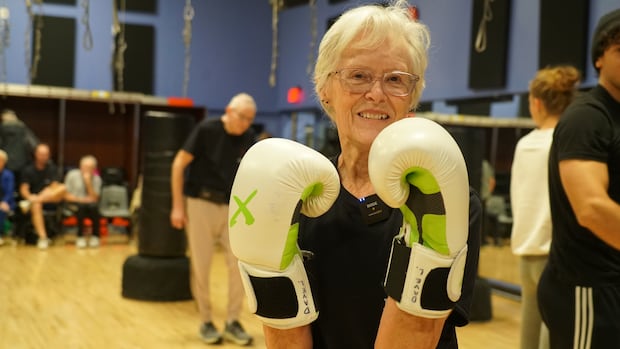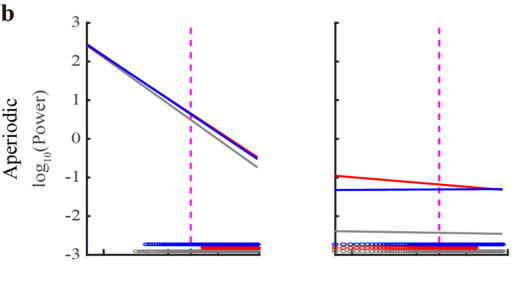Every week, Londoner Brenda Lipson finds herself standing in front of a gym full of boxing students, all chanting a simple phrase: “Quitting is not an option.”
It’s a mantra that resonates with athletes from all walks of life, but especially to the people in the class she leads.
That’s because they all have Parkinson’s disease, and they’re all learning how to box with the hope of staving off the effects of the disease.
“It’s not easy,” Lipson said. “We have to get them sweating and working hard, but it’s worth it.”
More than 35 people frequent the class, part of a program called Knock Out Parkinson’s Disease (KOPD) in London, Ont., a partnership between the physical rehabilitation company Neuphysio and Damian Warner Fitness Centre.
The classes are held three times per week at the Damian Warner Fitness Centre North, and bring together Parkinson’s patients who want to improve their fitness for non-contact boxing, with the hope that the exercise can lessen their symptoms.
Lipson said the results have been impressive since KOPD started almost three years ago.
“The one thing that a lot of people say to us when they come here with Parkinson’s is they didn’t know anyone else with the disease, and they also didn’t know what they could do,” she said.
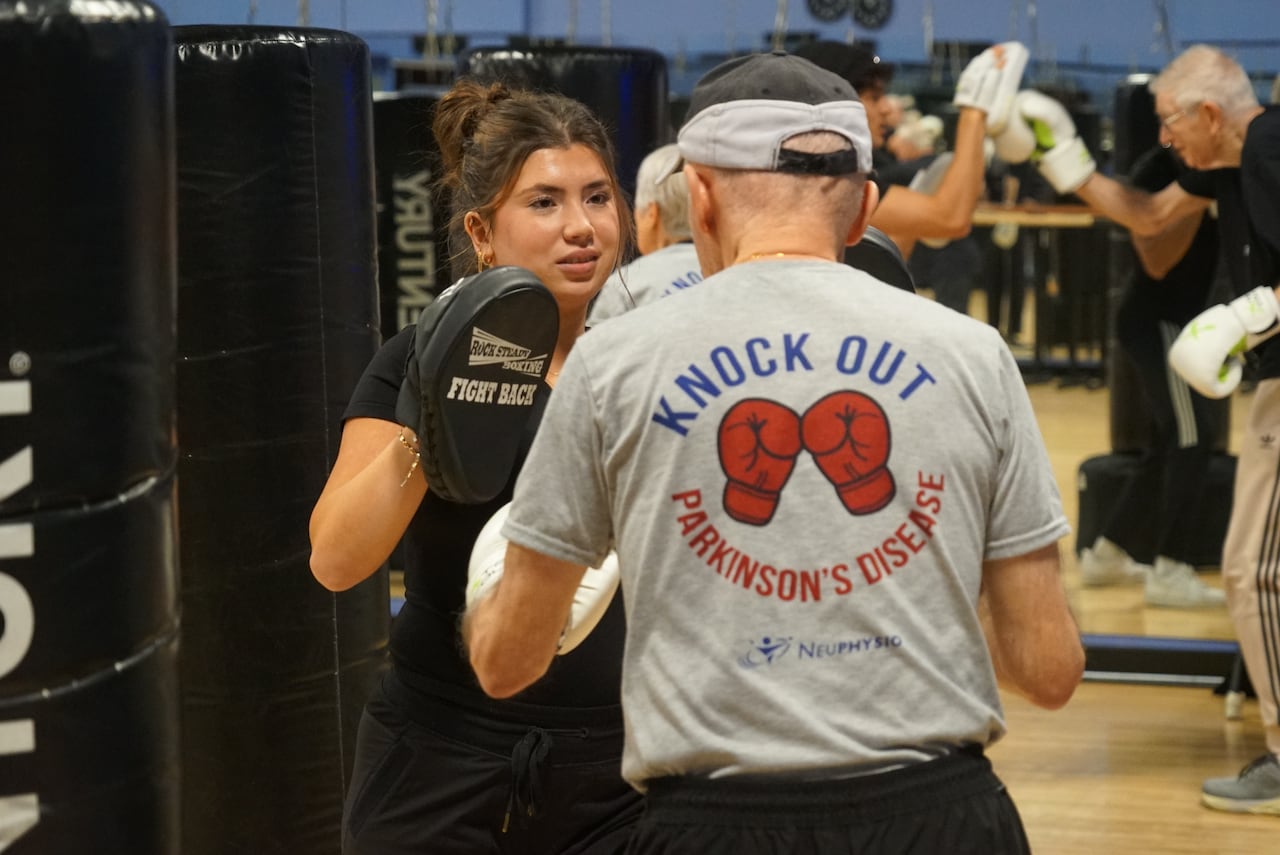
Beyond the desire to use her 44 years of physiotherapy experience to help Parkinson’s patients, there’s a personal motivation behind the work Lipson does.
Her husband has had Parkinson’s for 21 years.
“The first time we saw people with Parkinson’s boxing [in 2017], I went to him and said, ‘Let’s do this,’” said Lipson. “He said, ‘Are you crazy?’”
Working alongside her husband has also helped inform Lipson as she develops lesson plans.
“Unfortunately, most people with Parkinson’s don’t fit into a regular fitness program because they have different challenges and symptoms, and [sometimes] because they’re self-conscious,” she said.
Parts of the program that make it Parkinson’s friendly include 15 minute warm-up and cool-down periods, a variety of movements for things like strength-building, coordination, balance and more.
Volunteers also assist participants to ensure they’re staying safe, and the lessons are able to be moulded to the needs of each participant on the fly.
None of it would exist, though, without the people putting on the gloves.
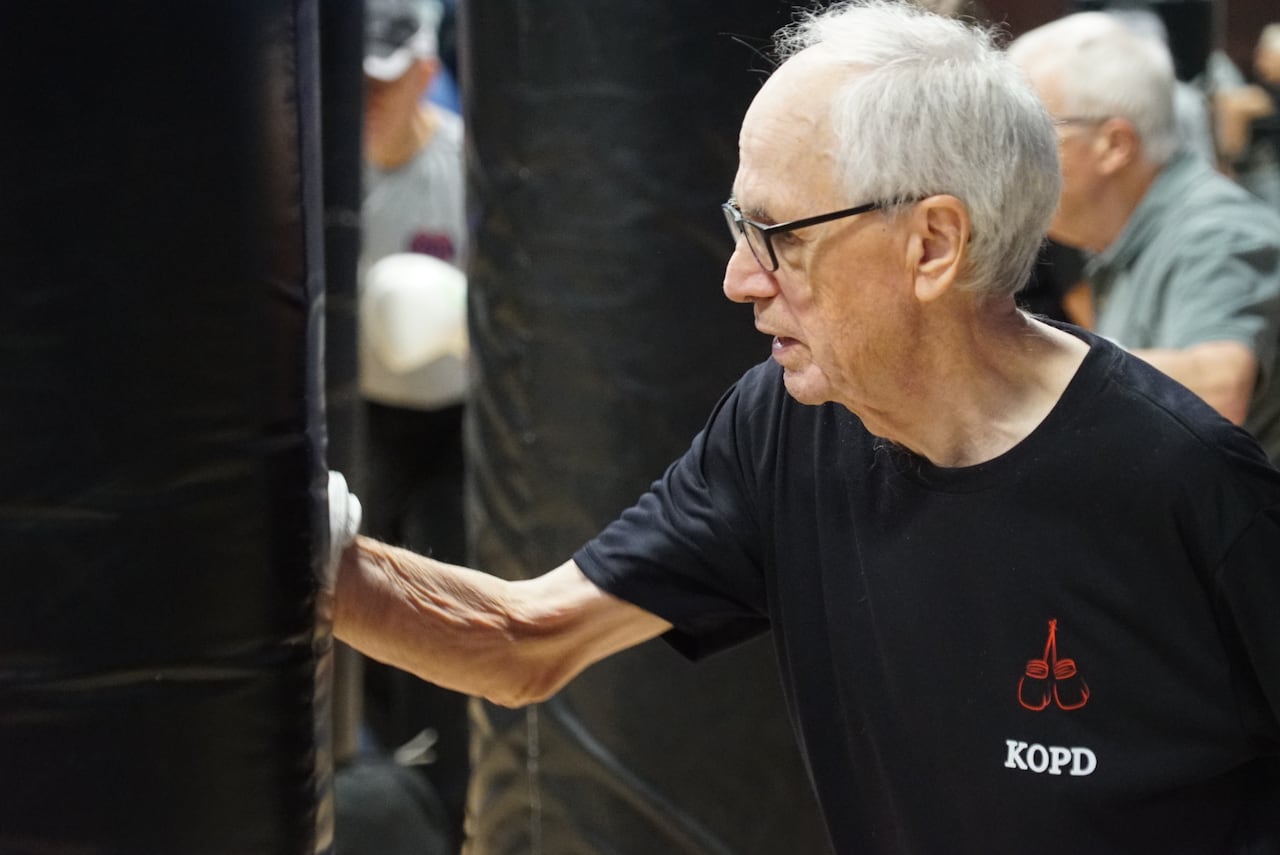
Students find camaraderie in boxing
Of all the people in the class shouting the words “quitting is not an option,” Georges Menerd is often the loudest.
The 79-year-old Londoner was diagnosed four years ago, and he calls KOPD his “happy place.”
When he started, he couldn’t get up by himself after falling, and made heavy use of a cane to get around.
“Within two months I was able to get rid of the cane, and within three months I was able to get rid of the walking stick,” he said. “I feel really strong right now. I feel healthy, and most importantly, I’m happy and positive.”
That positive feeling remains despite the continued progression of the unforgiving disease since he started the class. There days, he said life would be a whole lot harder now if he hadn’t joined the class.
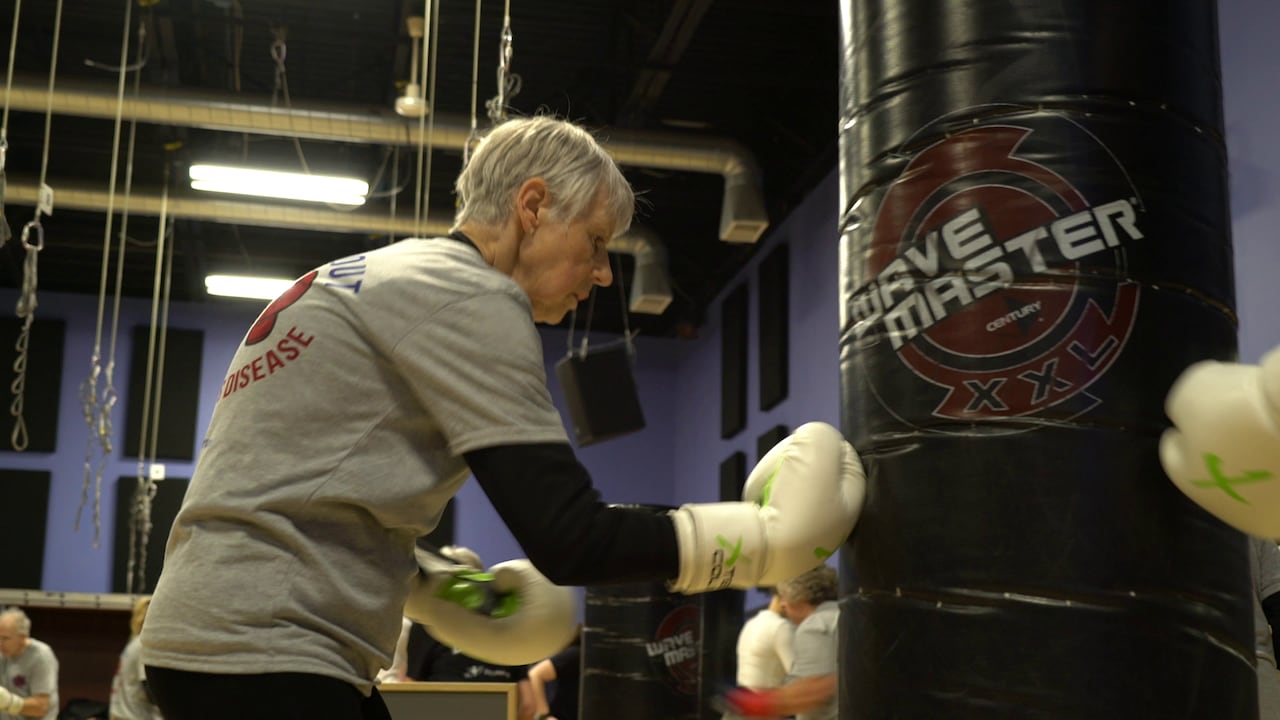
That’s not just because of the added benefits to fitness and mobility, but also because of the community he found in KOPD.
That sense of community is also much appreciated by Linda Moore, 71, who was diagnosed with Parkinson’s nearly 21 years ago.
“It was two years ago I joined. I met some great people and I discovered that we’re all the same, yet we’re all different,” she said.
In terms of physical benefits, Moore said she’s been able to stand taller since she joined, and both she and Menerd say they’ve experienced improved self-esteem.
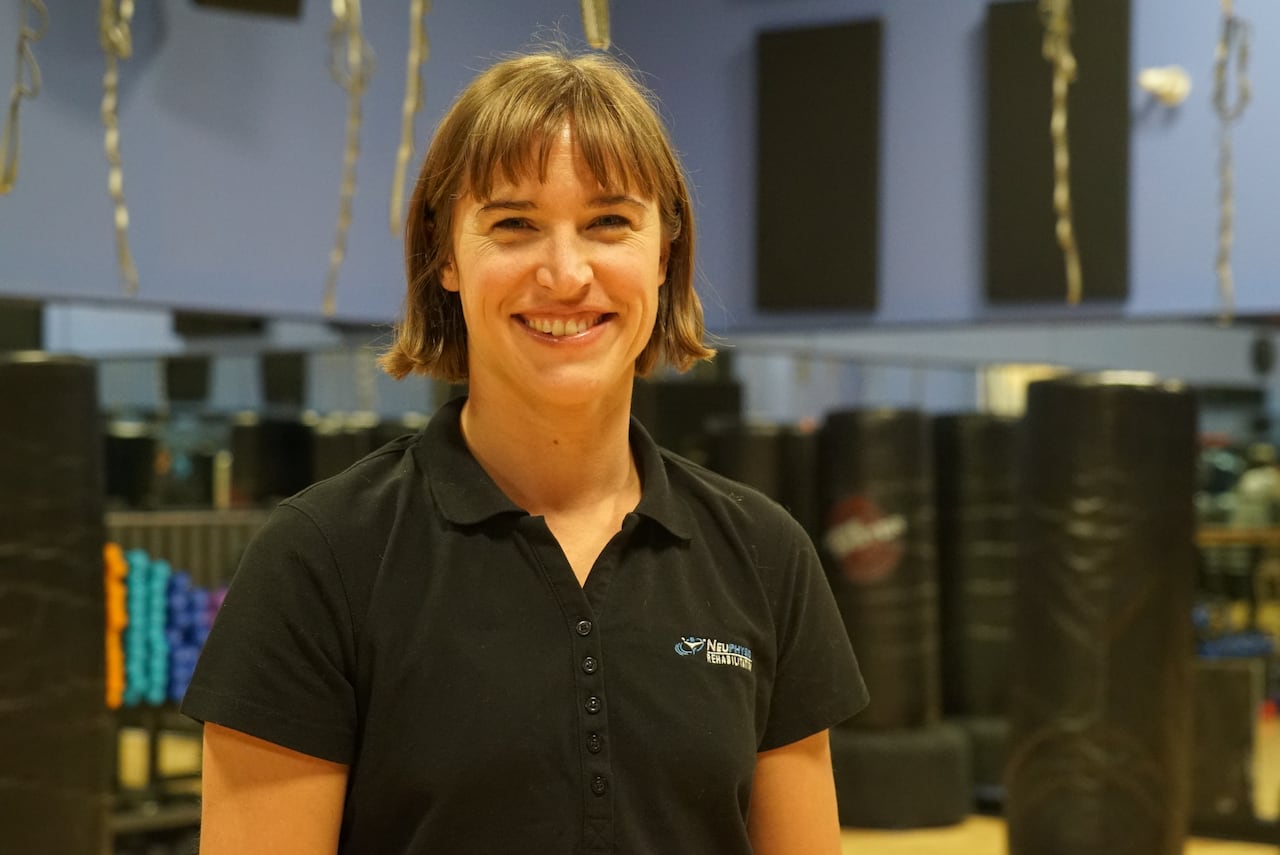
To Mairi Greig, a physiotherapist with Neuphysio and the director of KOPD, the class is not only her favourite part of the week, but something with often tangible outcomes.
“I think [most people] would be surprised at how rigorous and difficult our class actually is, but also how much everyone is able to do,” she said. “Something like medication can change the symptoms an individual is having, but exercise can change the progression of the disease.”
According to Parkinson Canada, there’s evidence to back up the suggestion that targeted exercise can slow the progression of the disease and help patients retain a better quality of life longer.
It’s something Greig and others involved with KOPD hope to carry on into the future for the benefit of people diagnosed with the disease.
“It’s so much more than just treatment,” Greig said.
